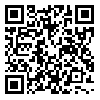Fri, Nov 21, 2025
[Archive]
Volume 38, Issue 1 (1-2024)
Med J Islam Repub Iran 2024 |
Back to browse issues page
Download citation:
BibTeX | RIS | EndNote | Medlars | ProCite | Reference Manager | RefWorks
Send citation to:



BibTeX | RIS | EndNote | Medlars | ProCite | Reference Manager | RefWorks
Send citation to:
Mohseni F, Mohammadi A, Kajavirad N, Basiri K, Khabaz Mafinejad M. Teaching Conflict Management Skills to Medical Students: A Scoping Review. Med J Islam Repub Iran 2024; 38 (1) :155-163
URL: http://mjiri.iums.ac.ir/article-1-8312-en.html
URL: http://mjiri.iums.ac.ir/article-1-8312-en.html
Department of Medical Education, Medical School, & Health Professions Education Research Center, Department of Medical Education, Education Development Center, Tehran University of Medical Sciences, Tehran, Iran , m-mafinejad@tums.ac.ir
Abstract: (1902 Views)
Background: Conflict management skills include the ability of team members to actively use appropriate methods and strategies in different conflict situations. Considering the necessity of effective training in conflict management skills for medical students as a member of healthcare teams, this scoping review study aimed at reviewing the appropriate methods for teaching conflict management to medical students.
Methods: In this scoping review, PubMed, Eric, ProQuest, Web of Science (WoS), and Scopus databases were systematically searched until May 21, 2023. Titles, abstracts, and full texts were screened separately by 2 researchers. The quality of the articles was assessed using the Best Evidence Medical Education (BEME) tool. Then, a descriptive synthesis was performed, and the results were reported. The Kirkpatrick model was used to evaluate the educational outcomes assessment.
Results: Out of 2888 retrieved studies, 19 studies were included. Although active and interactive teaching methods such as roleplay, group discussion, and interactive workshops were the most frequently used methods, the results did not pronounce the superiority of one method over others.
Conclusion: Based on the results of this scoping review, further research should evaluate the effectiveness of conflict management training methods by focusing on the randomized controlled trial design and using standard and valid tools to assess educational outcomes.
Methods: In this scoping review, PubMed, Eric, ProQuest, Web of Science (WoS), and Scopus databases were systematically searched until May 21, 2023. Titles, abstracts, and full texts were screened separately by 2 researchers. The quality of the articles was assessed using the Best Evidence Medical Education (BEME) tool. Then, a descriptive synthesis was performed, and the results were reported. The Kirkpatrick model was used to evaluate the educational outcomes assessment.
Results: Out of 2888 retrieved studies, 19 studies were included. Although active and interactive teaching methods such as roleplay, group discussion, and interactive workshops were the most frequently used methods, the results did not pronounce the superiority of one method over others.
Conclusion: Based on the results of this scoping review, further research should evaluate the effectiveness of conflict management training methods by focusing on the randomized controlled trial design and using standard and valid tools to assess educational outcomes.
Type of Study: Review Article |
Subject:
Medical Education
Send email to the article author
| Rights and permissions | |
 |
This work is licensed under a Creative Commons Attribution-NonCommercial 4.0 International License. |








